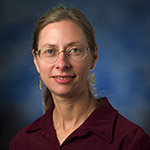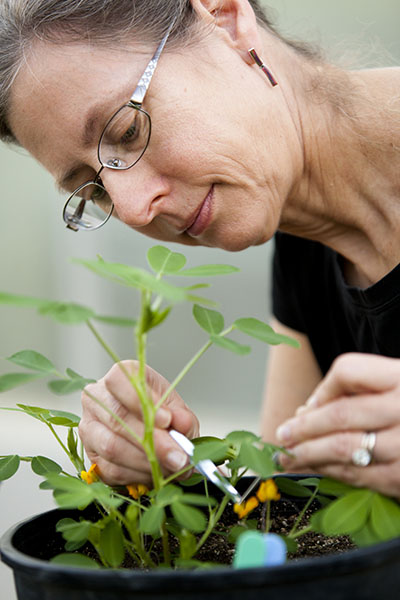Genotyping U.S. germplasm from Africa
 Principal Investigator
Principal Investigator
Peggy Ozias-Akins, Professor, Department of Horticulture, University of Georgia, Tifton Campus, Tifton, GA 31793 USA; pozias@uga.edu
Co-PIs
Josh Clevenger
Mars-Wrigley Confectionary, Center for Applied Genetic Technologies, Athens, GA, USA
jclev@uga.edu
Daniel Fonceka
Researcher and Scientific Coordinator, ISRA/CERAAS, Thiès, Senegal; daniel.fonceka@cirad.fr
David Okello
NaSARRI, Soroti, Uganda
kod143@gmail.com
Collaborators
Corley Holbrook
USDA-ARS, Coastal Plain Experiment Station, Tifton, GA, USA
Corley.Holbrook@ars.usda.gov
Shyam Tallury
USDA-ARS, Plant Genetic Resources Conservation Unit, Griffin, GA, USA
Shyam.Tallury@ars.usda.gov
Jean-Marcel Ribaut
Integrated Breeding Platform, CIMMYT, El Batán Texcoco, Mexico,
J.RIBAUT@CGIAR.org
Ethalinda Cannon
Iowa State University, Ames, IA
ekcannon@iastate.edu
Jean-Francois Rami
CIRAD, Av Agropolis, 34398 Montpellier CEDEX 5, France
rami@cirad.fr
Leveraging genetic resources to enhance peanut/groundnut breeding in Africa and the US
Area(s) of inquiry: Varietal Development
Research country focus: Senegal but impact for variety development in Ethiopia, Ghana, Mali, Malawi, Mozambique, Niger, Nigeria, Senegal, Uganda, and Zambia
Project length: Two years
Total budget requested: $25,000 with $100,000 co-funding by the Peanut Foundation
The project is part of a larger plan to generate a genetic catalog of the USDA peanut germplasm collection through the use of the second generation 48K SNP array. The plan builds on an earlier project commissioned by the Peanut Innovation Lab to genotype 1500 peanut lines nominated by breeding programs in west, east, and southern Africa to identify an African reference set.
In this phase, researchers are genotyping an additional 2500 lines of African origin that presently reside in the US germplasm collection. Thirty-six African countries of origin are represented among the selections in order to determine whether historical diversity is greater or less than, or equivalent to, that now used in breeding programs.
A set of US lines of African origin that captures additional diversity will be identified based on genotypic data and sent to CERAAS (Senegal) for seed multiplication. The set will be further shared with breeders in Africa in complement to the African reference set being developed from parallel genotyping data and scheduled for phenotyping under the lead of Daniel Fonceka and David Okello. Genotyping data from the commissioned and proposed project will be made publicly available through PeanutBase (peanutbase.org), where valuable data and genetic resources will be accessible to both African and US breeders.
